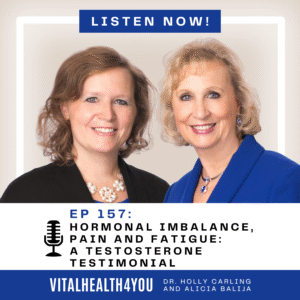A woman’s monthly cycle isn’t anything we really want, but it is a fact of life. It’s not so bad when it is healthy, but when it isn’t, it can be truly miserable! As with everything else that goes amiss with our bodies, if you are having miserable periods, we need to find out why. Taking medications for PMS (Pre-Menstrual Syndrome) or PMDD (Pre-Menstrual Dysphoric Disorder) may help temporarily, but it doesn’t resolve the problem.
Menstrual issues can be an imbalance of several different hormones: estrogen, serotonin, progesterone, luteinizing hormone, and follicle-stimulating hormone. The organs and glands responsible for the balance of hormones include the hypothalamus, pituitary, ovaries, and the uterine lining. For those with PMDD we need to also explore the health of the intestines, blood, brain and central nervous system to see why serotonin levels may be too low and emotions too volatile.
Several things are taken into consideration when evaluating the cause of a symptomatic menstrual cycle. Is the period a healthy 28 days in between or are they abnormally longer or shorter than that? How long is the bleed? 3 days or is it carrying on longer than that? Is the flow dark and heavy, does it have clots, or is it light and thin?
What symptoms do you have before or during your cycle? Breast tenderness, emotional lability, cramps, swelling of fingers, breasts or ankles, bloating, change of bowels, sugar cravings, angry outbursts, irritability, etc. are not “normal” symptoms, but indications that things are not balanced.
Each of the above 2 paragraphs contain symptoms or signs that are each treated differently. They have different causes. Different organ or gland involvement and require different responses.
After good investigative work to put together the puzzle pieces, figuring out the underlying causes, the use of diet, herbs, acupuncture and lifestyle modifications can make a huge difference in how the monthly cycle manifests. This should not be a time of misery. It should come and go without any of the symptomatic fanfare. There is hope for easier cycles.
©2020 Holly A. Carling, O.M.D., L.Ac., Ph.D.







